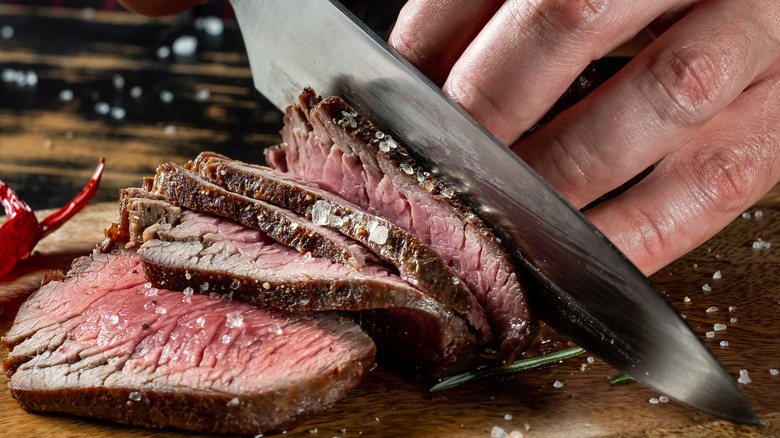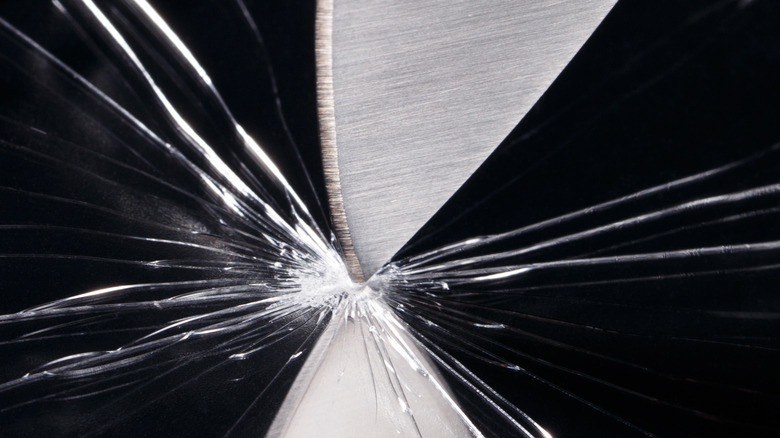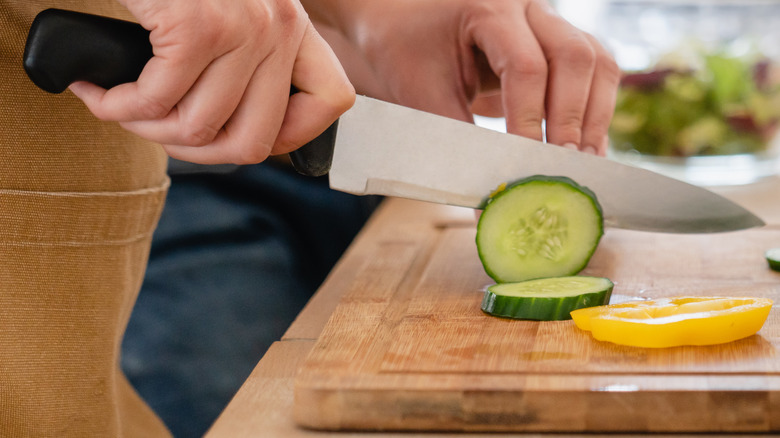Why Using A Glass Cutting Board Is A Death Sentence For Your Knives
It is difficult to argue that any tool is as important in the kitchen as a knife. What meal can you complete without cutting up an ingredient at some point? Knowing only a few basic knife cuts will make you look like a master chef, but whether you're performing a careful chiffonade on a bunch of basil or carving into a colossal chunk of steak, the cutting quality of your kitchen knife is of the utmost importance. Though a razor-edged blade obviously has an increased slicing potential, a properly sharp knife delivers cleaner cuts, therefore decreasing the potential for accidents.
You can keep your knives kitchen ready by regularly sharpening and honing them. While a certain amount of wear and tear is an inevitable part of the cooking process, another one of your kitchen utensils could be responsible for a disproportionate level of damage. The next time you're chopping, check the material of your cutting board to find out if you're condemning your knives to an early grave.
Glass cutting boards can result in dull knives
Obviously, each time you make a meal, it takes a toll on your knife. Luckily, certain techniques can be avoided to minimize this impact. For example, the popular practice of scraping chopped food off of the cutting board with your blade has a dulling effect. But to really extend the life of a knife's sharpness, you can change the surface upon which you're actually doing the cutting.
Glass cutting boards are undeniably pleasing to look at and exceptionally easy to decontaminate. But that is essentially where the efficacy of the glass cutting board as a kitchen implement ends. Glass cutting boards — as well as other boards made of similarly solid material, like marble or ceramic — are harder than your knife. Steel cannot keep its edge when it comes into repeated contact with an unforgiving board, and you could wind up chopping chicken with a prematurely dulled knife.
Additional issues
Accelerating the speed at which your knife loses its edge is not the only problem associated with cutting on a glass board. As you're likely aware, shattered glass is a serious problem, so a fracture in a glass cutting board could potentially contaminate an entire meal with a few stray shards.
Additionally, as a meal is being prepared, there will inevitably be a bit of liquid output, and glass cutting boards are incredibly slippery in certain conditions. In the best-case scenario, a slippery board will slow you down, and in the worst case, it could cause you to slip and cut yourself. However, many modern glass boards have a rubber guard to prevent some slippage.
Even if you're willing to risk a dull knife, sharp shards, and potential slips, the awful screeching sound that a knife makes when it is dragged across glass should be enough of a deterrent. These pitfalls can be avoided by doing your prep work on a wooden cutting board, a great soft surface that allows knives to thrive. If you still need to use your glass cutting board while a brand new wooden one is en route to your home, you can use this unexpected item to sharpen any kitchen knife.


